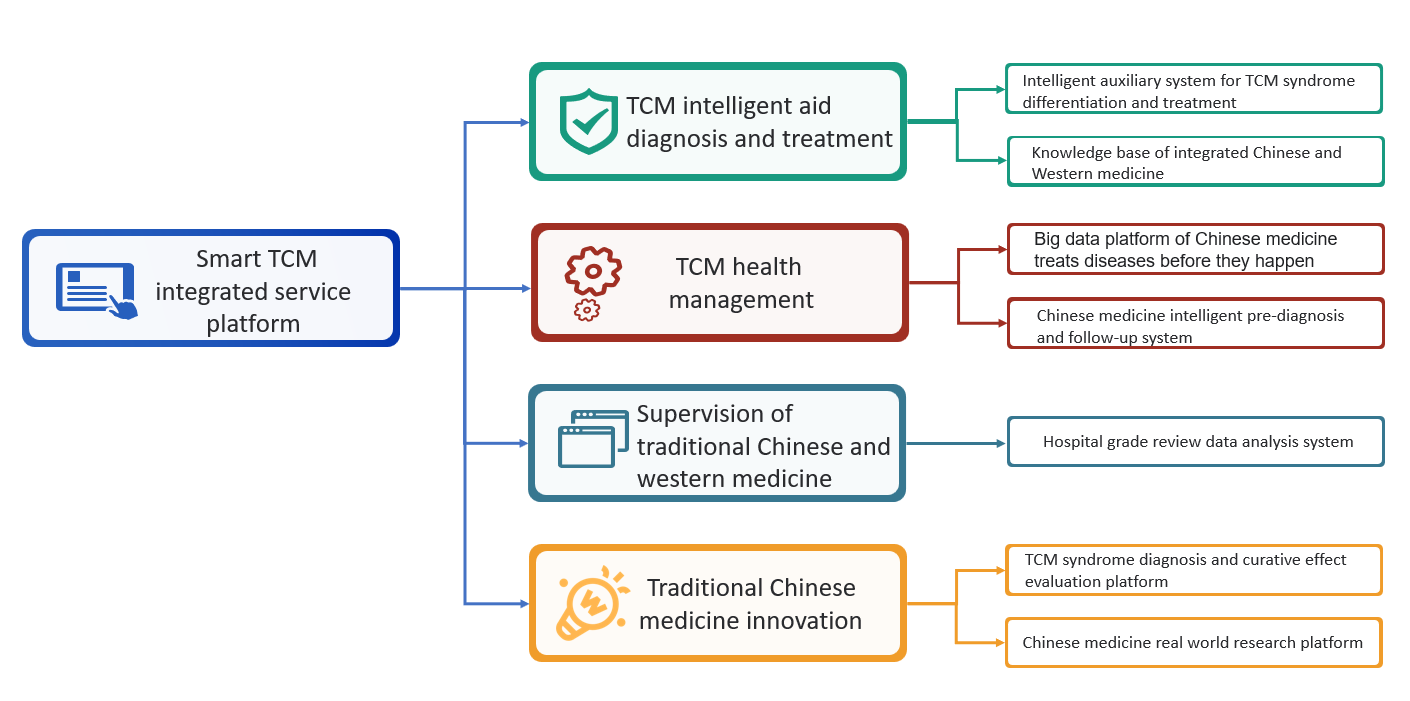For a long time, due to the lack of efficiency evaluation tools, it is difficult to evaluate the effectiveness of traditional Chinese medicine, resulting in a weak position in the competition with western medicine. Professor Zhou's research is focused on the development of statistical methods for evaluating the efficacy of Chinese medicine. Based on the diagnostic and causal theoretical research, he provides support for traditional Chinese medicine in terms of statistical methodology, makes the evaluation of TCM efficacy of TCM syndrome and diagnosis scale more accurate and reasonable, plays a positive role in promoting the normalization and standardization of TCM research, and solves the difficulties faced by traditional Chinese medicine to a large extent. Also, it is conducive to improving the scientificity and credibility of TCM related research. In addition, Professor Zhou led a team in Peking University Chongqing Research Institute of Big Data to develop the platform, and on this basis developed the first TCM syndrome diagnosis and efficacy evaluation platform based on big data in China, enabling grassroots TCM, promoting TCM service upgrading, and better serving patients.

Based on the knowledge Atlas, the
knowledge base of integrated Chinese and Western medicine builds a comprehensive and detailed knowledge database of integrated Chinese and Western medicine, which gathers various kinds of medical knowledge such as diseases, syndromes, symptoms, drugs, ancient and modern prescriptions, Chinese herbal medicines, Chinese proprietary medicines, meridian points, auxiliary tests, medical examinations, operations, clinical guidelines, medical literature, etc. A complete knowledge map of medical field is constructed by applying massive data and artificial intelligence technology.
The new generation of
Intelligent auxiliary system for TCM syndrome differentiation and treatment and treatment takes major diseases and dominant diseases of TCM as the starting point, relies on leading TCM syndrome diagnosis and curative effect evaluation technology, gathers hundreds of millions of TCM and western medicine knowledge content and hundreds of veteran TCM experience, and realizes intelligent assistance of TCM syndrome differentiation and treatment for more than 1,000 common diseases and 5,000 kinds of syndromes in more than 20 TCM specialties. To empower grassroots TCM, improve the clinical level of grassroots TCM, and serve the inheritance and development of TCM.
The platform of
TCM syndrome diagnosis and curative efficacy evaluation is designed from two aspects: the establishment of diagnostic scale and the evaluation of TCM efficacy. The diagnostic scale formulation platform is to set key links according to the scale formulation operation specifications, support the whole process operation of the TCM research team in the scale formulation through the syndrome terminology database, expert database, case database and calculation database, and provide statistical analysis function through the platform algorithm to comprehensively assist the scale formulation. The therapeutic effect evaluation platform is based on the study of therapeutic effect evaluation standard system, combined with structured data operation and intelligent transformation of experience, and applied to clinical research of traditional Chinese medicine.
Selected Publication:
- Lai X, Fang Z, Dong Z, Wu S, Zhou X, Gao Y. A propensity score matched comparison of blood pressure lowering in essential hypertension patients treated with antihypertensive Chinese herbal Medicine: comparing the real-world registry data vs. randomized controlled trial. Clin Exp Hypertens. 2023;45(1):2249269. doi:10.1080/10641963.2023.2249269
- Zhang D, Wang Y, Meng Z, Feng L, Cao K, Li T, Gao Y, Zhou X, Zhang C. Corrigendum to "Efficacy of Diterpene Ginkgolides Meglumine injection in elderly patientswith ischemic stroke: A post hoc analysis of a randomized controlled trial" Phytomedicine. Phytomedicine. 2023. doi: 10.1016/j.phymed.2022.154505.
- Guo W., Zhou XH., Ma S. Estimation of Optimal Individualized Treatment Rules Using a Covariate-Specific Treatment Effect Curve with High-Dimensional Covariates. Journal of American Statistical Association 2021, 116:533, 309-321.
- Li X., Zhang H., Zhou XH. Chinese clinical named entity recognition with variant neural structures based on BERT methods. Journal of Biomedical Informatics, 2020, 107.
- Wang X., Zhou V., Liu Q., Gao Y., and Zhou XH. Evaluation of the accuracy of diagnostic scales for a syndrome in Chinese medicine in the absence of a gold standard. Chinese Medicine 2016; 11: 35.
- Zhou XH., Chen B., Xie Y., Tian F., Liu H., Liang X. Variable selection using the optimal ROC curve: An application to a Traditional Chinese Medicine study on osteoporosis disease. Statistics in Medicine 2012; 31: 628-635.
- Zhou XH., Li S., Tian F., Cai B., Xie Y., Pei Y., Kang S., Fan M., Li J. Building a disease risk model of osteoporosis based on traditional Chinese medicine symptoms and western medicine risk factors. Statistics in Medicine 2012; 31: 643-652.
- Wang Z., Zhou XH. Random effects models for assessing diagnostic accuracy of traditional Chinese doctors in absence of a gold standard. Statistics in Medicine 2012; 31: 661-671
